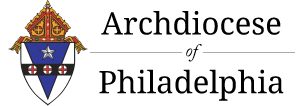As I noted some weeks ago, over the next two months I’ll be turning over my column space (on an occasional basis) to young people and others experienced in youth and young adult ministry. With a synod of the world’s bishops focusing on young people scheduled in Rome for this October, hearing directly from the young and those engaged in guiding them can be a great resource.
Stefan Johnson, 26, born and raised in Philadelphia, recently returned from his studies in Europe. I’m pleased to offer his thoughts below:
I did my graduate studies at Oxford, England, finishing them earlier this year. While away, I met Catholics of many different nationalities and ethnicities from around the world. Yet the one thing we all shared was a faithful core of Catholic belief. I attended Mass with new friends from Nigeria, the Philippines, Poland, Ireland, Italy, and elsewhere. Despite the peculiarities of our upbringings and the cultural nuances of our parishes back home, we shared a common love for the Mass and a common trust that the Church’s teachings everywhere were the same.
The universality of the Catholic Church (“Catholic” meaning universal) is a beautiful fact of the faith that ensures consistency and clarity across diverse social, political, and cultural contexts. Thanks to technology, young adults of the 21st century are more closely linked to people throughout the world than any other generation in history. Given this growing connectedness, I believe the 2018 synod should focus on at least the two following areas: (1) a clear affirmation of the teachings of the Church; and (2) a loud proclamation of the unique role Jesus Christ has for each of us in our lives.
Why are these things important? It’s because an unhappy side effect of today’s mass media culture is a widespread misunderstanding of Catholic belief and practice. For example, priests routinely provide guidance to their parishioners in a pastoral manner by being sensitive to their situational details on the ground. But pastoral sensitivity can easily – and sometimes deliberately – be misconstrued as divergence from Church teaching. Urgent headlines, the pressure of deadlines, and social media that thrive on brevity, rarely capture the nuanced relationship between principle and action in everyday Christian life. The result is confusion and ambiguity.
Many Catholics I know came to the Church precisely because of her consistent teaching. The faith of the Church, handed down scrupulously from the apostles, often at great cost, has drawn millions of people for two millennia to encounter Jesus Christ. Fads, opinions, and ideas change over time, but one of the great beauties of the Church is that she does not dance to the latest tunes of society. Our faith gives us a longer view. We rely on the truth and consistency of God’s Word.
The constancy of Catholic teaching is neither rigid nor barren. The Church has a message that speaks to every person and every society with the fertility of new life. Like a masterful work of art, the unchanging message of the Church offers us new fruit every time we turn to it. Anecdotally, many of the people I encountered in churches while abroad longed for a reaffirmation of the authentic teachings of the Church. They found beauty in the clear and confident faith that drew them to become Catholic. Rapid growth is taking place in the Churches of Africa and Asia, and they attract people by offering them something more than material comfort through the beauty and faith of the Church. The lesson should be obvious. The synod needs to listen carefully to the voices of young people. But it also needs to turn away from ambiguity, and trust in the liberating, always-young power of the faith to transform lives; a faith passed down to us by the apostles and entrusted to their successors.
Young people in the millennial and Generation Z age groups – in other words, persons my age — often struggle today with a loss of purpose in their lives. The national rise in depression and suicides confirms this. I implore the synod fathers to stress the message that God has a plan for everyone. As Jesus says, he (and only he) is the way, the truth, and the life. Secular culture glorifies those who pursue self-interest over service, physical gratification over moral dignity, and self-designed “spirituality” over communal prayer. We were made for better things; and only Jesus Christ can heal the emotional and spiritual scars of the human heart.
Contact:Contact: Kenneth A. Gavin
Chief Communications Officer
215-587-3747 (office)






